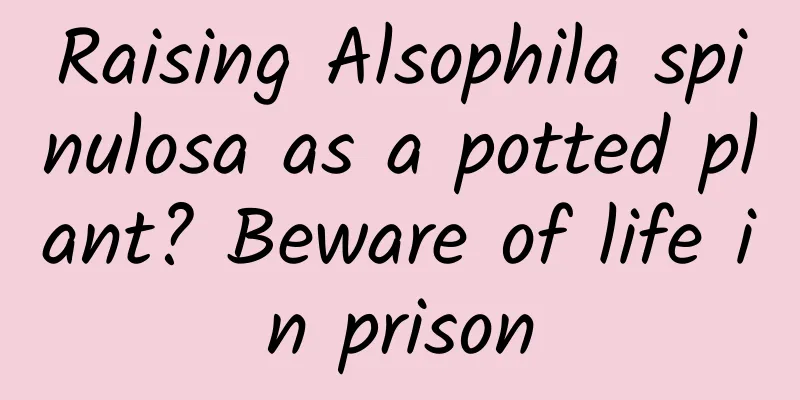Nuts are a popular New Year's gift! Will eating them make you fat or thin? Decoding 6 rumors about nuts

|
Author: Xue Qingxin, registered dietitian Reviewer: Zhang Na, Associate Researcher, Doctoral Supervisor, Peking University School of Public Health gossip When it comes to nuts, they are definitely the best among snacks. They are healthy and delicious, and most importantly, they are very stress-relieving. For today's foodies, who doesn't have a few bags of nuts in their drawers? In fact, it is not because we are greedy that we eat nuts. After all, even the "Dietary Guidelines for Chinese Residents (2022)" recommends eating 50-70 grams of nuts per week, which is an average of 7-10 grams of nuts per day. Even so, many people do not eat enough. Nuts are very "hot", so there are naturally many rumors about them. Let's dispel the rumors about nuts. analyze Rumor 1: You can’t eat nuts to lose weight? · Truth: You can eat it, but the amount should be controlled. A maximum of 10 grams per day is recommended. Nuts are delicious, but many people don't dare to eat them. The reason is: fear of getting fat. Especially for those who are losing weight, they don't dare to eat them at all. Copyrighted stock images, no reproduction is authorized The American Journal of Clinical Nutrition once published a study on the link between long-term nut intake and obesity. The experiment found that adding nuts to a calorie-restricted diet was not associated with weight gain, but rather resulted in greater weight loss and higher insulin sensitivity. The literature also shows that a high intake of nuts (especially walnuts) is associated with a reduced risk of diabetes. Therefore, regular consumption of nuts (about once a day) can be part of a healthy diet to prevent obesity and type 2 diabetes. In addition, many other domestic research results have also shown that appropriate intake of nuts can reduce the risk of obesity. Although the research says that you can eat nuts, you can't be too fussy about it, after all, they are not low in calories. my country's "Dietary Guidelines for Chinese Residents" recommends that the daily intake of nuts should be 50-70g per week, averaging about 10g per day. How much is this? Equivalent to: 7~8 cashews/ 7~8 almonds/ 7~8 pistachios/ 2 pecans/ a handful and a half of shelled melon seeds/ 1 walnut in shell. If you eat more nuts on a certain day, you can reduce the amount of cooking oil appropriately. Be careful when choosing nuts. Try to choose original nuts and avoid nuts with flavors such as milk flavor or salt-baked flavor. Rumor 2: Eating nuts can dissolve blood clots? Truth interpretation: Eating nuts regularly can prevent cardiovascular disease, but it cannot dissolve blood clots. Nuts are rich in unsaturated fatty acids, and can also supplement nutrients such as protein, potassium, calcium, zinc, vitamin E, B vitamins, etc. Eating nuts in moderation every week is good for your health. Studies have shown that people who consume 24 grams or 28 grams of nuts a day have a lower risk of cardiovascular disease than those who never eat nuts. It can reduce the concentration of total cholesterol, bad cholesterol, and triglycerides in blood lipids. However, there is no evidence that eating nuts can dissolve blood clots, so you cannot expect to treat the disease by eating nuts. If you want to treat and remove blood clots, you should actively cooperate with your doctor. Rumor three: Sprouted nuts cannot be eaten, are they poisonous? · Truth interpretation: Sprouted nuts are not only non-toxic, but also twice as nutritious and delicious. Sprouting potatoes are not edible and are highly toxic, so people should always be wary of sprouted foods. This awareness of food safety is commendable, but there is no need to worry about sprouting nuts, they are edible, and the nutritional value of many nuts will increase after sprouting. Nuts contain phytic acid and tannin, which are the main sources of astringency in some nuts. For example, the phytic acid content of almonds, hazelnuts, pistachios, and cashews are 2.54g/100g, 1.29g/100g, 1.56g/100g, and 0.19~4.98g/100g, respectively, while soybeans, which are often said to have a high phytic acid content, only have 1~2.22g/100g; the tannin content in walnuts is 27.56mg/100g, while it is not detected in most other nuts. After nuts germinate, the content of phytic acid and tannin will decrease, and the content of amino acids and fatty acids in nuts will increase, and the starch content will decrease. Copyrighted stock images, no reproduction is authorized Studies have shown that during the germination process of walnuts, the content of amino acids and fatty acids gradually increases, while starch gradually decreases. Amino acids increase from 13.38g/100 to 16.43g/100g; fatty acids increase from 53.39% to 57.88%. Starch decreases from 10.38% to 6.37%. During the germination process, the moisture content of peanuts will increase significantly, the mineral content will not change much, the total nitrogen content will increase, and the free amino acids and total sugar content will begin to rise. The macromolecules will decrease, the content of small molecules that are easier for the human body to absorb and utilize will increase, and the content of functional ingredients will increase. However, the nuts we buy are almost all ripe nuts that have been roasted and cannot continue to germinate. In addition, it is not recommended to sprout nuts at home for consumption. This is because the environment required for germination is relatively humid, and the temperature and humidity requirements are very high. This environment is more conducive to the reproduction of bacteria and microorganisms, increasing the possibility of nuts becoming moldy, which may pose a health hazard. Rumor 4: Sugar-roasted chestnuts can cause cancer? · Truth interpretation: Proper sugar-roasted chestnuts do not cause cancer. Sugar-fried chestnuts are a popular street snack. Unlike peanuts and sunflower seeds, sugar-fried chestnuts contain not only chestnuts, maltose, and vegetable oil, but also a lot of black stones. The stones must be turned while frying the chestnuts, mainly because the small stones conduct heat quickly and are heated evenly, so the chestnuts can be cooked faster and have a better flavor. There is a rumor among the people: there is paraffin on the small stones used to make sugar-roasted chestnuts, which makes the chestnuts shiny and can cause cancer if eaten. Copyrighted stock images, no reproduction is authorized In fact, according to GB2760-2014 "National Food Safety Standard for the Use of Food Additives", food-grade paraffin can only be used as a processing aid and its use should be necessary for the process. Paraffin functions as a release agent and is used in candies and baked goods. There is no need for such a process in chestnut frying, so it is not allowed to be added during the chestnut frying process. Therefore, if you buy sugar-roasted chestnuts from a regular merchant, you don’t have to worry about the problem of paraffin, nor do you have to worry about causing cancer after eating them, unless you encounter an unscrupulous and illegal vendor. When buying sugar-roasted chestnuts, you should also be careful. Normal chestnuts are not very shiny and feel a bit sticky. If the chestnuts are shiny and smooth, you should be careful when buying them. Rumor 5: Eating ginkgo nuts can cure diabetes? · Truth interpretation: There is currently no evidence that eating ginkgo nuts can cure diabetes, and it may even cause poisoning. Ginkgo, also known as gingko, has a yellow kernel inside and tastes sweet. It can be cooked or fried, but eating it raw or eating too much may cause poisoning. Copyrighted stock images, no reproduction is authorized This is because ginkgo nuts contain toxic ingredients such as ginkgo toxin, hydrogen cyanide, allergenic proteins, ginkgolic acid, etc. Eating them raw or eating too much at one time can cause poisoning, with symptoms such as nausea, vomiting, abdominal pain, diarrhea, convulsions, and in severe cases respiratory failure or even death. Eating 5 to 10 raw ginkgo nuts can cause ginkgo poisoning in young children. If you like to eat ginkgo nuts, it is best to remove the green germ in the kernel and heat it before eating. Although this will reduce the toxicity, you can't eat too much! As for the claim that eating ginkgo nuts can cure diabetes, there is no scientific basis for it. Do not try it blindly and should follow the doctor's advice for treatment. in conclusion Nuts are the best snacks, healthy and delicious. There are many rumors on the Internet that have no scientific basis, so we should eat nuts healthily and don’t believe in rumors! Planning|Zhong Yanping Editor-in-charge|Liu Yantong (internship) |
<<: Which is the coldest planet in the solar system? Where is the coldest place in the universe?
Recommend
Two Key Points for B Station's Hot Videos
This article analyzes how the UP host "bobo ...
iOS 16.1 beta: The battery progress bar is back! No longer showing full charge
Early this morning, Apple pushed the second beta...
Tesla to build factory in Europe, site selection to be next year
Recently, according to European Automotive News, ...
#千万IP创科普# It's called "Ling Bu Fu", a 10-year-old "snow mountain warrior"
On September 1, the 2024 "First Lesson of th...
China Unicom iPhone 5S Official Unlock 4G
Yesterday, China Unicom launched an APP designed ...
What is the difference between electric toothbrushes that are 100 times more expensive? The key is to look at this parameter
Electric toothbrushes are now very common. When p...
Useful information: A comprehensive promotion strategy for Internet new media platforms!
Today, new media with social attributes represent...
HTC: Why did the "pig" that was once on the cusp of the trend fail to fly?
In response to rumors that HTC will be acquired n...
An asteroid may hit the Earth in 7 years? Don't be afraid, it's not the first time...
Editor: Dong Xiaoxian Reviewer: Zhang Chao, Li Pe...
「Autohome’s SEO strategy」 What are the SEO optimization strategies?
The specific SEO optimization strategies are as f...
17 psychological phenomena that planners and promoters must know in 2020
Consumer insights , which marketers often talk ab...
Five important factors to improve the quality of mobile application development
[51CTO.com Quick Translation] Are you planning to...
Is Huaihua under lockdown in 2022? Can I still enter Huaihua now? Attached with the latest notice
Recently, new local outbreaks have occurred in ma...
Mr. Xin and Mr. Ling's "Healthy Meta-Universe"
This is the 3538th article of Da Yi Xiao Hu Mr. X...









